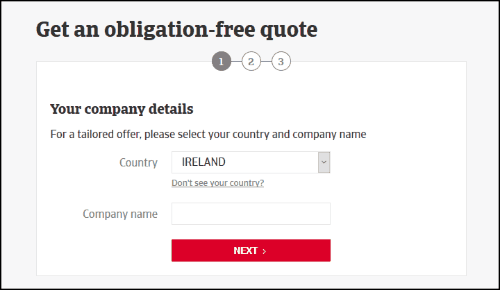You may wonder why your customers haven't made payments to you.Have they misplaced their invoices? Do they not have enough cash? |

|
If you continue to wait and see, you actually let your business bleed money.
Many late payments can disrupt your cash flow to the point where you wouldn't be able to pay your own suppliers or employees.
Whether they're from your new or long-time customers, outstanding invoices are serious problems that require your immediate actions.
Here are four steps you can take to treat late payments effectively. |

|
1. Double-check your invoicing |
|
Before making assumptions about your customers' payment practices, have a quick check to see if the problem stems from your side.
You can check the following as soon as an invoice becomes outstanding.
-
Payment terms
- Are there any special terms that could extend the due date of the invoice?
-
Invoice
- Is the due date stated correctly?
-
Communications
- Is your customer not satisfied with your goods or services?
- Has your customer complained about anything in the invoice?
- Has your customer had difficulties with the payment methods you provided?

|
If there is indeed something wrong with invoicing and you haven't solved it completely, take care of that before going to the next step. |
2. Send a reminder |

|
If your invoicing is correct and you haven't received any payment, send your customer a friendly reminder immediately.
This will give your customer a chance to pay the invoice (if they forgot to do so) or to voice their concerns (if they didn't tell you before).
In your friendly reminder, it's necessary to:
- State the unpaid invoice's unique number and due date
- Say that you haven’t received payment
- Ask when you can expect payment
- Ask if your customer has questions about the invoice or the goods or services supplied, or if they need help with the payment methods you provided
- Ask if there are any other reasons why they haven't paid you
- Attach the unpaid invoice even though your customer already has it. This is to prevent them from making excuses such as they didn't receive it, lost it, or forgot about it.
Try to keep the overall tone of your reminder friendly, yet firm and matter-of-fact.
Sometimes a friendly reminder may give your customer the nudge they need to pay you. Or you may find out the underlying reasons for the late payment.

|
However, if you still hear nothing from your customer, it's time to take the next step. |
3. Make a call |

|
Not everyone is comfortable asking their customer to pay over the phone. But that's the best move you could make when your customer keeps silent after receiving your friendly reminder.
Here are some do's and don'ts of asking for payment once you've got them on the line.

|
Don'ts |
- Don't assume anything. There might be many reasons why your customer hasn't paid. So listen to what they have to say.
- Don't get emotional. You may strongly disagree with your customer on some points. But staying calm and firm often yields better results.
- Don't hang up empty-handed. Get your customer to agree on a next step, whether it's setting a new payment deadline or arranging a payment plan.

|
Do's |
- Do prepare. Have all the information about the outstanding invoice and its payment terms ready.
- Do insist that your customer pays the invoice as soon as possible. Let them suggest first how they'd like to do that.
- Do make deadlines for everything. Once you both agree on what the next step should be, make it clear when it'll happen and when to follow up.
- Do have a Plan B. Let your customer know what you would do if they break the agreement. For example, you could engage a debt collections agency to collect the outstanding invoice. Keep in mind that you'll need to carry out your Plan B if the situation arises in order for your customer to take it seriously.

|
It's important to find solutions during the call. If your customer's financial position is not strong, you may need to give them some leeway to pay the outstanding invoice (e.g. an extended due date, an instalment plan). The agreement you reach with your customer could vary, but always make sure you follow the next step. |
4. Send follow-up notes |

|
It's one thing to come to a verbal agreement, it's another thing to stick to it. A good way to motivate your customer to fulfil their promise is to write it down.
During the call, take notes of what you and your customer discussed, especially:
- What is your customer's next step to pay the outstanding invoice?
- What is your next step to help your customer, if applicable?
- When should those steps happen?
- When will you follow up to make sure that those steps happen?
- What would you do if your customer goes back on what was agreed?

|
After the call, send your customer your notes. You could also ask them to confirm the recorded agreement.
By having everything down in writing, you have proof and a reference point for future calls if your customer doesn't follow through with the agreement.
|
In many cases, these four steps are just the beginning of a long process.
Your customer might ignore or avoid your attempts to contact them.
They might still refuse to pay after talking with you.
If it becomes too time-consuming to collect your unpaid invoices, or your efforts haven't resulted in payment, consider getting external help.
An experienced and professional collections agency with the right approaches can encourage your customers to pay, while maintaining your business relationships.
With Atradius Collections, you can use the online service to:
- Know right away how much it costs to collect your outstanding invoices. Get a free quote here.
- See real-time updates on the collections progress
- Get paid as soon as your customers pay their outstanding invoices

